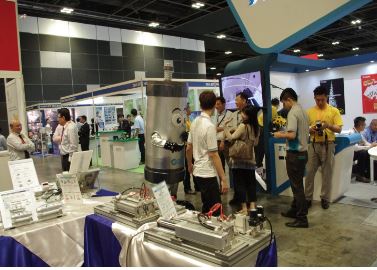Lack of manpower, supply chain disruptions: Manufacturing body calls for innovation to stay competitive

Amid a manpower crunch and global crises that have disrupted supply chains, the Singapore Manufacturing Federation (SMF) has called on the sector to innovate or risk falling short of its 10-year growth target.
The decade-long plan to grow Singapore’s manufacturing sector by 50 per cent, as well as maintain its share of about 20 per cent of gross domestic product (GDP), was announced in January 2021.
At the time, the sector – Singapore’s largest industry – contributed about 21 per cent, or around S$106 billion (US$78.7 billion), of the total GDP. It hired 450,000 workers, or around 12 per cent of the workforce.
The sector has since grown by 17 per cent to about S$125 billion, or 18.6 per cent of the total GDP, in 2023.
However, firms told CNA that despite their best efforts to keep up with the latest trends and technology, external factors and a lack of manpower have made it tougher for them to stay competitive globally.
The Israel-Hamas war as well as the Red Sea crisis, which have been going on for six months, have caused import costs to rise by about 20 per cent. This has in turn led to higher production costs.
It now uses recyclable paper and plastics to make its tea bags, which can biodegrade in a shorter period of time compared to conventional plastics. It also uses compostable tea bags, which are plant-based and more environmentally friendly.
The company also installed solar panels to use more renewable energy and save costs in the long run. It has invested in automation, including robotics, in its production line, saving an average of 30 per cent in manpower costs that it can plough back into retraining workers.
However, the brand’s founder and executive director, Mr Lim Tian Wee, said a typical shipment coming from Europe now takes two months – up from the typical one month.
“I think with the Red Sea crisis and what’s happening in the Middle East, Singapore companies are having to deal with a much more complex supply chain,” he added.
“(Shipment delay) is a big problem for companies like us who are buying raw materials that are plant-based, so we are trying to solve this problem as best as we can. But we understand that this situation may last much longer than we would like it to.”
Mr Lim estimated that the company’s supply chain costs will increase by about 15 to 20 per cent.
“Overall, it’s not a great time … for food manufacturers, but we will do our best in terms of managing the whole issue,” he said.
